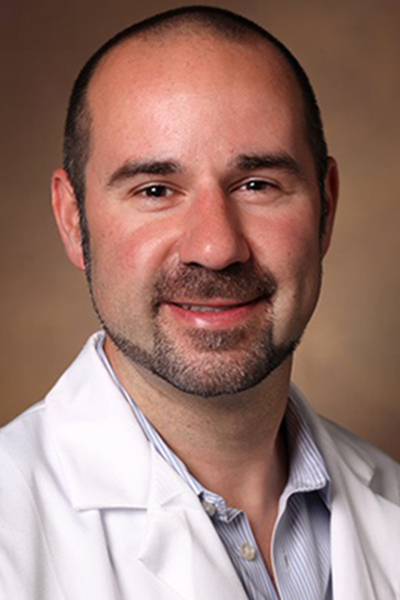A panel of experts presented summaries of the latest advances in early and advanced breast cancer, basic science, and translational research during the Special Session, “Year in Review” on Friday, Dec. 11.
“2020 has been a very tough year in a lot of ways, but it hasn’t stopped our scientific progress and the great strides and studies that have been reported in 2020,” said Erika Hamilton, MD, Director of Breast and Gynecological Research, Sarah Cannon Research Institute/Tennessee Oncology, who provided insights into the early stages of the disease.
Early Breast Cancer

Dr. Hamilton identified multiple recurring themes in recent studies on early breast cancer, among them the concept that biological response matters more to risk stratification than initial presentation factors such as lymph node status or size. “Examples here are KATHERINE, where high risk was defined based on a lack of pCR (pathologic complete response) instead of the more traditional node positivity, or PHER-GAIN, where imaging response after two cycles was used to tailor treatment,” she said.
Additionally, research has found that the adage “more is not always better” to hold true. “In early breast cancer, we cure over 90% of patients,” Dr. Hamilton said. “It is the select patient that needs more. This applies to who should get anthracyclines and even platinum.”
She also underscored the need for different approaches in different settings. “Metastatic breast cancer is not the same as early breast cancer,” she said. “This is true whether we talk about immunotherapy benefit in all comers, in early TNBC versus only the PD-L1-positive subset in metastatic TNBC, or whether we are talking about meaningful endpoints for estrogen receptor (ER)-positive disease.”
It is important to note, meaningful endpoints are not the same across tumor types.
“PCR is a great endpoint for triple negative and HER-2-positive cancers and often translates to event-free survival and overall survival; however, for hormone receptor-positive disease, objectives like pCR may not be a good surrogate for long-term outcome,” Dr. Hamilton said.
Advanced Breast Cancer

Rebecca A. Dent, MD, FRCP, Head and Senior Consultant, Department of Medical Oncology, National Cancer Center Singapore, and Associate Professor, Duke-NUS Medical School, Singapore, reviewed select studies from 2020 that answered clinically significant questions on how to improve survival, enable good quality of life, provide important information to guide future clinical trials, and deliver cost-effective utility to the community.
There are now seven HER2-targeted therapeutic agents with FDA approval for HER2-positive metastatic breast cancer: ado-trastuzumab emtansine (T-DM1), lapatinib, neratinib, pertuzumab, trastuzumab, trastuzumab deruxtecan, and tucatinib.
Concerning immune checkpoint inhibition in TNBC, two randomized phase 3 trials have confirmed the benefit of PFS, and atezolizumab and pembrolizumab have gained FDA approval.
Following first-line therapy with CDK 4/6 inhibitors for ER-positive and HER2-negative metastatic breast cancer, second line therapy for patients with PIK3 mutant tumors now includes alpelisib plus fulvestrant, and for those with PI3KCA wild type, endocrine therapy. However, Dr. Dent pointed out, sequencing of therapy and ER-positive metastatic breast cancer is still controversial and real-world data is needed.
“There has been extraordinary progress despite COVID-19,” she said. “Multiomic analysis is informing development of new targeted agents with novel mechanisms of action — kinase targets, antibody drug conjugates, immunotherapy, and multiple combination approaches.”
She concluded with recognition of an ongoing transformation in the field of oncology — rapid mRNA vaccine development has begun in cancer and trials are underway, she said.
Basic Science

Helen Piwnica-Worms, PhD, Professor, Department of Experimental Radiation Oncology, University of Texas MD Anderson Cancer Center, reviewed breast cancer developments in basic science. She discussed how breast cancers evade tumor cell killing by cancer therapies, understanding and targeting metastasis, how cells escape immune surveillance and how to get around it, extracelluar matrix (ECM) stiffness and breast cancer, new frontiers in the tumor ecosystem and microbiome, and resources for the research community.
“To escape immunosurveillance, cancer cells muffle their immunogenic features and induce an immunosuppressive microenvironment,” she explained, citing two papers that identify a novel role of TREM2 in negatively regulating anti-tumor responses through the generation of immunosuppressive myeloid cells within a tumor’s microenvironment.
“Reshaping tumor-associated macrophages by TREM2 blockade may be a promising avenue for complementing checkpoint immunotherapy,” Dr. Piwnica-Worms said.
One of the new frontiers she reviewed was analysis of the breast cancer ecosystem in situ. Heterogeneity remains an obstacle to effective clinical management of breast cancer, she acknowledged, explaining that a comprehensive understanding of the disease requires taking into account all forms of heterogeneity and interrogating the tumor ecosystem as a whole and in situ.
Concerning the microbiome, she cited studies that establish “a gut microbiome-metabolome network can offer substantial protection against radiation-induced damage and offers a promising route for preventing the adverse side-effects of radiation treatment.”
Translational Research

Justin M. Balko, PharmD, PhD, provided an overview of developments in translational science related to hormone-driven breast cancer, the HER2 pathway, triple negative breast cancer (TNBC), and metastasis, as well as opportunities for advancement in these areas. Dr. Balko is an Associate Professor of Medicine and of Pathology, Microbiology, and Immunology at Vanderbilt University Medical Center and Vanderbilt Ingram Cancer Center.
While immune-oncology (IO) has been a meaningful advancement in breast cancer, he said effective biomarkers are needed to capitalize on its activity.
“I think some of the things we’ve identified have value, but will be difficult to employ in the neoadjuvant setting since there are already clear markers of chemotherapy benefit alone,” Dr. Balko said. He sees a need for translational validation of new pathways and checkpoints such as B7H4.
In the metastatic setting, Dr. Balko identified understanding how to broaden and deepen response rates as an area of high impact.
“As breast cancer is not as immunogenic and harbors generally lower tumor mutation burdens, we could address this by discovering new ways to enhance antigen presentation, which I like to think of as making the most out of a little,” he said.
Among opportunities for advancement he sees in the field are addressing tumor dormancy and vulnerability in disseminated and possibly senescent tumor cells; improving understanding of metastatic processes; identifying new targets during therapeutic adaptation, which he thinks will be addressed in the AURORA project; and continuing to address resistance in HER2-activated breast cancer in the case of implications of mutations, and endocrine resistance in the context of CDK 4/6 and PI3K resistance.
SABCS registrants will have exclusive on-demand access to this and other virtual SABCS programming until March 13, 2021.

